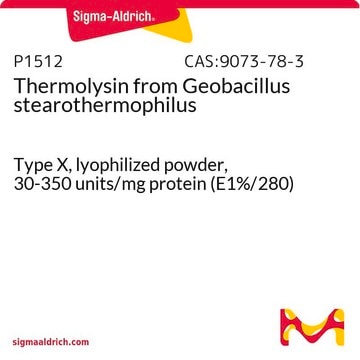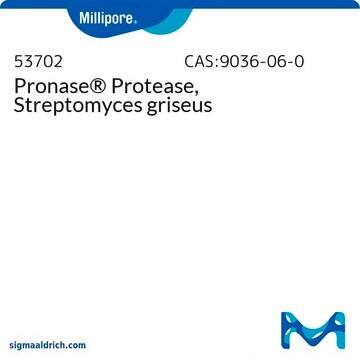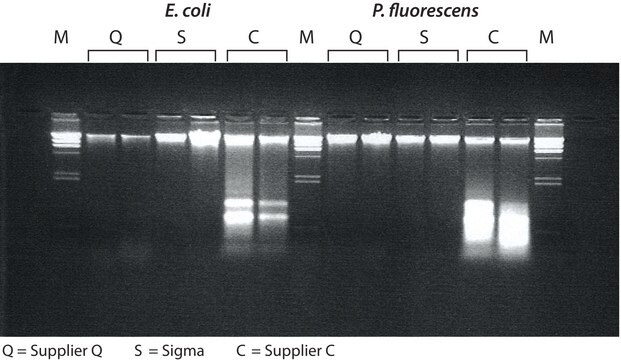T7902
Thermolysin from Geobacillus stearothermophilus
powder, BioReagent, 30-350 units/mg protein (E1%/280), suitable for cell culture
Synonym(s):
Protease from Geobacillus stearothermophilus, Thermophilic-bacterial protease
About This Item
Recommended Products
biological source
Geobacillus stearothermophilus
Quality Level
product line
BioReagent
form
powder
specific activity
30-350 units/mg protein (E1%/280)
mol wt
34.6 kDa
purified by
crystallization
technique(s)
cell culture | mammalian: suitable
single cell analysis: suitable
storage temp.
−20°C
Looking for similar products? Visit Product Comparison Guide
Application
Unit Definition
Physical form
inhibitor
Signal Word
Danger
Hazard Statements
Precautionary Statements
Hazard Classifications
Resp. Sens. 1
Storage Class Code
11 - Combustible Solids
WGK
WGK 3
Flash Point(F)
Not applicable
Flash Point(C)
Not applicable
Personal Protective Equipment
Certificates of Analysis (COA)
Search for Certificates of Analysis (COA) by entering the products Lot/Batch Number. Lot and Batch Numbers can be found on a product’s label following the words ‘Lot’ or ‘Batch’.
Already Own This Product?
Find documentation for the products that you have recently purchased in the Document Library.
Customers Also Viewed
Our team of scientists has experience in all areas of research including Life Science, Material Science, Chemical Synthesis, Chromatography, Analytical and many others.
Contact Technical Service













